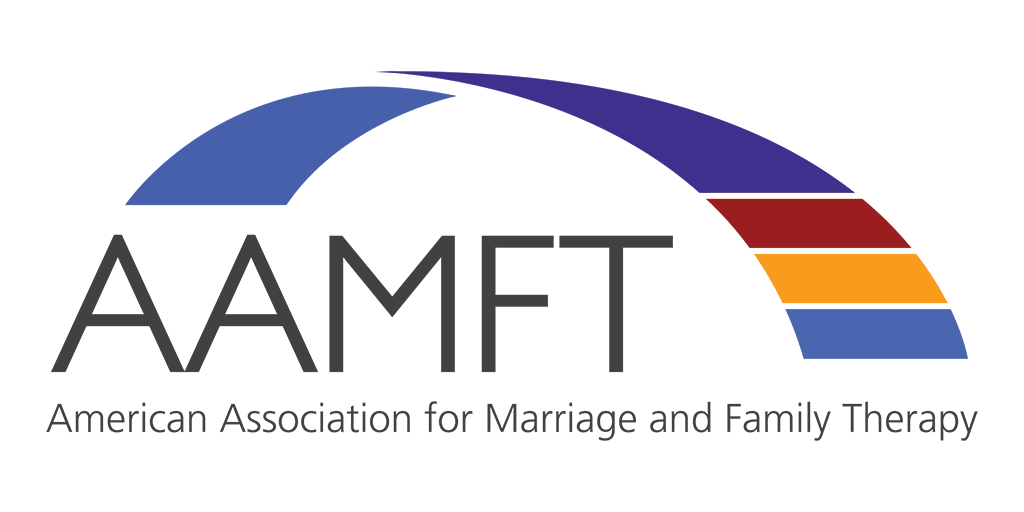American Association for Marriage and Family Therapy (AAMFT)
Healthcare
Industry
25,000+ Marriage and Family Therapists
Members
Professional Society
Organization Type
Alexandria, VA
Headquarters
Challenge
COVID-19 drove unprecedented growth in the demand for mental health services in the U.S., severely exacerbating the shortage of professionals to meet this explosive demand. In addition, the pandemic also changed the way mental health services were delivered and how marriage and family therapists wanted to shape their practice.
Like nearly every other sector of healthcare and business, these workforce challenges — and new ways of responding to the growing and shifting need for services — endured well beyond the pandemic. To this day, there is only one mental health care provider for every 340 adults in the U.S. In addition, nearly 122 million Americans live in areas with health provider shortages.
Opportunity
The American Association for Marriage and Family Therapy (AAMFT) knew that they had to lead their members to thrive in the new normal by removing barriers to practice while also attracting new entrants into the profession.
In early 2022, they decided to invest in acquiring the depth and breadth of meaningful data required to understand the field’s challenges and opportunities in a post-COVID world.
AAMFT engaged McKinley Advisors to conduct an industry workforce study, which included recommendations for priorities AAMFT could address immediately and in the long term. They sought expertise to help them understand the many nuances of the complex workforce challenge, from reimbursement challenges and interstate licensure needs to changing business models and the repercussions these were having on access to care.
Solution
McKinley conducted qualitative and quantitative research among various stakeholders and audience segments to uncover:
- Pathways into the profession (second career vs. immediately after undergraduate education).
- Professional challenges such as burnout, the financial burden for young professionals, low starting salaries, and concerns over replacing aging professionals.
- Anticipated trends over the next three to five years, especially continuing high demand for mental health services, telehealth, and diversity, equity and inclusion.
- Level of interest in and current challenges to securing licensure to provide services to people in additional states
The research was conducted in two phases. First, a set of qualitative interviews with 20+ key AAMFT leaders and stakeholders at various career stages uncovered the key issues for further research. In the next phase, a quantitative survey of AAMFT members and non-member marriage and family therapists (MFTs), as well as those in training, was distributed to nearly 26,000 contacts and elicited a 12% response rate.
In addition to the research, McKinley’s team applied their deep knowledge and expertise on professional licensure issues in healthcare to analyze the business case for different methods of easing barriers to interstate licensure and recommend how AAMFT could secure meaningful wins in solving the workforce problem with reasonable investment of time, talent and treasure.
Some healthcare professions like physicians and nurses have interstate licensure compacts — a legal agreement between multiple states that allows healthcare professionals licensed in one participating state to practice in other member states without obtaining separate licenses. However, pursuing these compacts is an expensive process, fraught with hurdles, and requires interested parties to reside in states that participate. Ultimately, it was not the right path for AAMFT. McKinley recommended that instead, AAMFT should focus efforts on removing identified process and requirement barriers to advance license portability for marriage and family therapists on a state-by-state basis, focusing on areas where the greatest need was identified through research.
Outcomes
McKinley’s industry workforce study helped AAMFT uncover the priorities of the field and validated that the changes engendered by COVID were here to stay. The association gained a deeper understanding of the current operating environment for marriage and family therapists and learned about preferred ways to practice in the future.
They learned that the younger generation of professionals in the field are entering the field earlier in their careers, are more entrepreneurial, more focused on specialization, and keen on maintaining work-life balance to avoid burnout. AAMFT was also able to identify barriers to entry into the profession.
The data yielded by the study and the business case analysis helped to shape AAMFT’s advocacy priorities. About two years after the study, the association is seeing promising results from three initiatives that it chose to focus on to move the needle for its members:
- Advocacy efforts resulted in the addition of licensed marriage and family therapists as Medicare Part B providers in 2024. In less than a year, more than 10,000 therapists have enrolled to be Medicare providers, improving access to mental health care for the senior population.
- AAMFT’s advocacy saw the passage of new laws in seven states in 2024 to decrease barriers to licensure portability for marriage and family therapists. This is already increasing access to care. For example, previously, Virginia had a challenging licensure portability process, but new legislation simplified things, stipulating that being licensed in one state in good standing is sufficient to be licensed in Virginia. In the three months since the law was enacted, there was a 150% increase in the number of MFTs who became licensed via this method in the state.
- The association participated in the docuseries Jobs of Tomorrow, with six episodes to showcase what marriage and family therapists do and attract new people to the profession. The episodes have reached nearly a million people already, driven by the association's strategic marketing using social media advertising to those moving from undergraduate into graduate programs.
AAMFT is encouraged by the returns on these three initiatives and knows it is moving in the right direction to make impactful changes for the profession. Investing in the data and having the outcomes influence how they do business has paid off.
In 2025, AAMFT plans to continue advocating for licensure portability in ten states. They also plan to keep a pulse on the field through periodic studies and micro research on breaking news issues to inform the association’s strategic advocacy priorities.
Access the 2022 Industry Workforce Study here.
“As a result of the workforce study we did with McKinley, we saw the need for some pretty significant shifts in our strategic priorities, and so we made sure that those were better aligned with what our members were needing and experiencing post-COVID. That has been tremendous in terms of impact on moving the needle for our industry and the populations it works with.”
Amanda Darnley
Chief Strategy Officer, American Association of Marriage and Family Therapy









